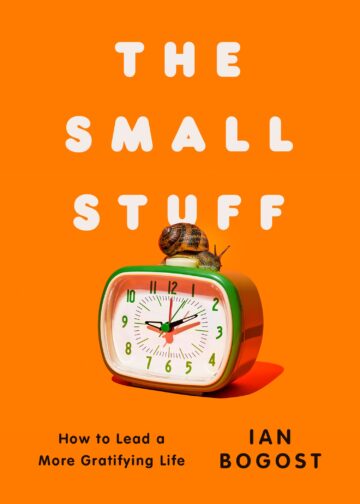From popular The Atlantic columnist Ian Bogost, a lively reflection about how we’ve become disconnected from the physical, world—and how to reclaim joy and gratification in your day-to-day life.

In an era dominated by convenience and efficiency, one would think that life would be simpler, easier, and most importantly, happier. After all, shouldn’t all the time saved with machines and technology leave us with more time for ourselves? The Atlantic columnist Ian Bogost thinks not. From QR code menus and digital tickets to automated self-checkout counters, he argues that the simple pleasures of daily life have been stripped away, replaced by sleek, but soulless, design.
Through engaging anecdotes and sharp analysis, Bogost uncovers how modern conveniences not only fail to deliver on their promises but also rob us of small, satisfying tasks and moments that keep us grounded and human. He challenges us to rethink our daily interactions with the material world and illuminates how the loss of these tangible interactions has contributed to widespread feelings of disconnection and dissatisfaction.
But all hope is not lost. Bogost guides us to identify and appreciate the overlooked joys hidden in everyday life. By reforming how we approach ordinary tasks, we can rediscover the gratification embedded in the tactile world around us.
Humorous, thought-provoking, and practical, The Small Stuff reveals that finding joy isn’t about achieving monumental happiness or prolonged satisfaction. It’s about doing small things, deliberately and with attention, to unlock the basic pleasures that flavor our daily lives.
About the author
Ian Bogost is a contributing writer at The Atlantic. He is the Barbara and David Thomas Distinguished Professor at Washington University in St. Louis, where he is also a professor of computer science and engineering, film and media studies, and art and design. Bogost is the author of ten books, including Play Anything. Bogost is also an award-winning game designer whose work has been played by millions of people and has been held in collections internationally, including the Smithsonian American Art Museum. Find out more at Bogost.com.
